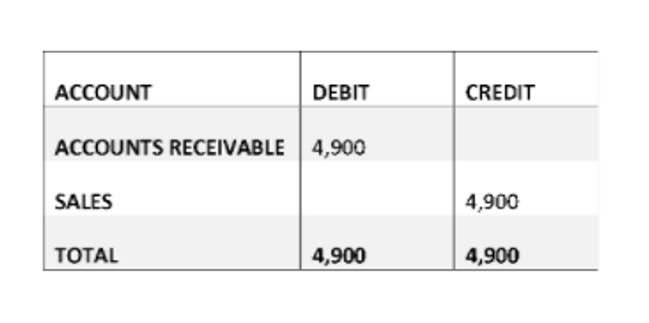
Once the delivery is unloaded in the receiving country, responsibility is transferred to you. With FOB destination, ownership of goods is transferred to the buyer at the buyer’s loading dock. From there, the title for the goods transfers from the supplier to the buyer immediately and if anything happens to the goods at any leg of the journey to the buyer from there, the buyer assumes all responsibility.

Sign up for our logistics newsletters
Factors like the mode of transportation, the nature of the goods, the relationship between the buyer and seller, and individual preferences can all influence the choice of term. Incoterms (International Commercial Terms) are a set of internationally recognized f.o.b. point standards that define the roles of buyers and sellers in the transfer of goods in international and domestic trade. Specifically, FOB indicates at which point the responsibility (and risk) of the shipped goods transfers from the seller to the buyer.
Legal Implications of Using F.O.B. Shipping Point in Contracts and Agreements

The seller must still (at its own cost) provide the buyer with proof that the goods have been delivered on board, whether that be a mate’s receipt, some other form of receipt, or a transport document such as a bill of lading. The seller must also assist the buyer with any information or documents the buyer will need for its import clearance formalities (at the buyer’s request, risk, and cost). If agreed, the seller must contract for carriage (at the buyer’s risk and cost) on the usual terms, which are usually agreed upon in the contract or determined by previous dealings between the parties. The buyer bears all risks of loss or damage to the goods once the seller has delivered them as described in A2.
What to Consider When Choosing Between F.O.B. Shipping Point and Destination
On the other hand, in FOB Destination Point contracts, sellers might also harness similar advantages, especially if they have economies of scale in their shipping operations or can combine multiple shipments to different buyers. In FOB Shipping Point agreements, buyers, due to their potential volume of shipments or pre-established relationships with freight carriers, might be able to negotiate more favorable shipping rates or conditions. Incoterms aim to simplify international trade by offering a standardized set of terms, reducing misunderstandings and disputes. Only upon delivery, at the predetermined destination, do the costs and responsibilities transfer to the buyer. Generally, FOB is generally specified in a sales agreement and is accounted for under inventory costs.
Additional Shipping Terms
When goods are labeled as FOB shipping point, the seller’s role in the transaction is complete when the purchased items are given to a shipping carrier and the shipment begins. However, it should be noted that whichever F.O.B. term is used, it can be modified by agreement between the parties based upon their individual preferences and also bargaining power. Thus, deciding whether to use F.O.B. Origin or F.O.B. Destination for the term of sale is just the beginning of the analysis. Let’s say you’re in Dallas and purchase a bulk order of widgets from a San Francisco wholesaler.
- In F.O.B. shipping point, title and ownership of goods are transferred from seller to buyer at the point of shipment.
- Unlike FOB shipping, the supplier is not required to ensure the safe movement from port to ship.
- A year later, he transitioned into sales, and in 2015 he moved into management.
- On the other hand, one potential disadvantage of using F.O.B. shipping point is that it may not be suitable for all types of products or industries.
- The FOB destination terms included the stipulation that the printer delivered to one address and having them split the order in San Diego was a significant extra expense for us.
FOB Destination or FOB Shipping Point?
If a shipment is sent under FOB destination terms, the seller won’t record the sale until the goods reach the buyer’s location. Likewise, the buyer won’t officially add the goods to its inventory until they arrive and are inspected. Because of this, misunderstanding FOB shipping point terms can be costly for buyers.
Bob has the honour of being the first Australian and only the second non-lawyer to be invited by the ICC to be a member of their Incoterms® Drafting Group to draft the new Incoterms® 2020. This was as a result of his being a member of the ICC’s committee which drafted the new publication “ICC Guide to Transport and the Incoterms® 2010 Rules”. The most usual such document is the certificate of origin, but in practice, it is unusual for the seller to charge the buyer with the relatively insignificant cost of this.
It plainly lays out how far along into the process the supplier will ensure that your goods are moved and at what point the buyer takes over the shipment process. The buyer is not responsible for the goods during transit; therefore, the buyer often is not responsible for paying for shipping costs. The buyer is also able to delay ownership until the goods have been delivered to them, allowing them to do an initial inspection prior to physically accepting the goods to note any damages or concerns. For example, let’s say Company ABC in the United States buys electronic devices from its supplier in China and signs a FOB shipping point agreement. Company ABC assumes full responsibility if the designated carrier damages the package during delivery and can’t ask the supplier to reimburse the company for the losses or damages.

In F.O.B. shipping point, title and ownership of goods are transferred from seller to buyer at the point of shipment. On the other hand, in F.O.B. destination, title and ownership of goods are transferred at the place of delivery agreed upon by the buyer and seller. This means that the seller bears the risk of loss or damage during transit in F.O.B. destination until the goods arrive at the buyer’s location.
- At Finance Strategists, we partner with financial experts to ensure the accuracy of our financial content.
- If the terms include “FOB origin, freight prepaid,” the buyer is responsible for the goods at the point of origin, but the seller pays the transportation costs.
- Sellers should have contingency plans to manage potential delays and communicate effectively with buyers in such situations.
- In 1989 he started his own business as an independent consultant and educator assisting exporters and importers in the “back office” side of their businesses.
- Before negotiating, make sure you understand the consequences of using FOB shipping point or FOB destination for your purchase—in terms of costs, risks, and responsibilities.
- It means that a seller pays for all shipping costs and that a transaction is not complete until the goods reach the buyer’s destination undamaged.

